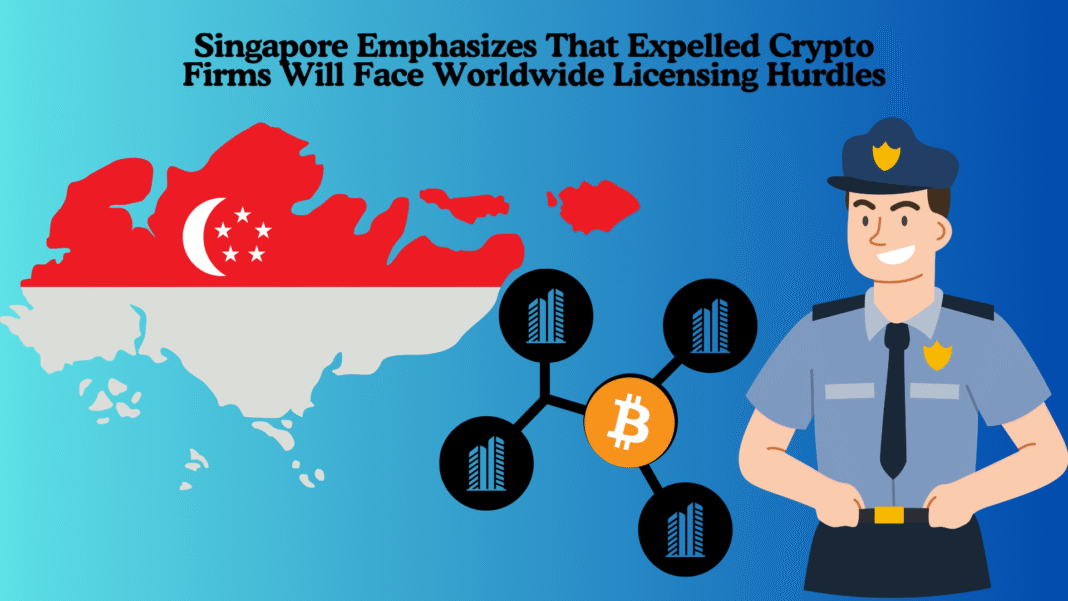Singapore has introduced a pivotal regulatory measure requiring all cryptocurrency firms operating within its jurisdiction to obtain proper licensing before providing services to customers outside the country.
Announced by the Monetary Authority of Singapore (MAS) on May 30, this directive enforces provisions under the 2022 Financial Services and Markets Act (FSMA).
Initially perceived by some industry stakeholders as a departure from Singapore’s traditionally open crypto policies, MAS clarified on June 6 that this licensing requirement is part of a carefully phased regulatory framework.
Following a public consultation grace period, firms must now either secure the necessary licenses or cease their foreign-facing operations, signaling a clear and firm regulatory approach toward crypto business activities.
Closing the Loophole: Regulatory Arbitrage Ends
This new enforcement effectively closes a regulatory loophole that allowed crypto companies to avoid licensing by focusing exclusively on overseas customers while operating from Singapore.
Previously, under the Payment Services Act (PSA), the rules were mostly applied to domestic transactions, allowing firms to bypass oversight by limiting their service to foreign clients.
Singapore’s small domestic market of around six million people made this an attractive loophole for scaling crypto operations.
MAS’s decisive action aims to prevent firms from exploiting Singapore’s financial hub status without complying with proper legal standards.
Legal and industry analysts view this move as a landmark, predicting that firms unwilling to comply will soon face operational hurdles not only in Singapore but also in other major global financial centers.
Also Read: Northern Iraq’s Kurdistan Launches Crypto Crackdown Following $15M Fraud Scandal
Global Crypto Regulation Tightens, Limiting Market Options
Singapore’s regulatory crackdown aligns with a global trend of increasing oversight on cryptocurrency firms.
Jurisdictions like Hong Kong have intensified enforcement by revoking licenses and pushing unregistered exchanges out since mid-2024, reducing licensed crypto operators to roughly 10 firms.
Major players such as Bybit, recently expelled from Thailand, are now seeking licenses in multiple countries, including Malaysia.
Meanwhile, the Philippines and Thailand have introduced stricter rules mandating physical office presence and stringent anti-money laundering (AML) checks.
These developments are rapidly narrowing the operational landscape for crypto businesses, leaving firms with limited choices: either fully comply with increasingly stringent regulations or exit key markets altogether.
Also Read: Kuwait Targets Illegal Crypto Mining in Nationwide Energy Crackdown
Singapore Aligns with Global Standards to Safeguard Financial Integrity
Singapore’s enforcement of licensing requirements is part of a broader, internationally coordinated effort led by the Financial Action Task Force (FATF) to integrate digital assets into the global regulatory framework.
The FSMA’s expanded scope for foreign-facing digital token services closely follows FATF’s Travel Rule and AML guidelines, highlighted during the FATF plenary in February 2025.
Other global financial hubs such as the European Union (via the MiCA framework), the UK, South Korea, Japan, and Dubai are adopting similar regulations.
Non-compliance risks placement on FATF’s gray list, potentially isolating countries from the global financial ecosystem.
By strengthening regulatory oversight, Singapore reaffirms its position as a reputable and serious financial center that balances innovation with compliance, potentially setting a regulatory benchmark for jurisdictions worldwide.
Also Read: Hong Kong Police Arrest Over 500 Individuals in Massive $199M Crypto Related Crimes Crackdown


